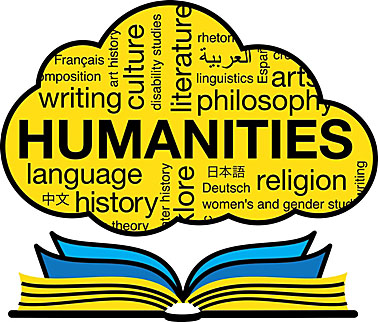America’s past — from the first ancient city to the Revolutionary War — will be explored in this semester’s final Humanities Happy Hour.
 The event, which will feature Dr. Ami Pflugrad-Jackisch, associate professor of history, and Dr. Melissa Baltus, assistant professor of anthropology, will take place Friday, March 27, from 6 to 7 p.m. in the Libbey Hall dining room.
The event, which will feature Dr. Ami Pflugrad-Jackisch, associate professor of history, and Dr. Melissa Baltus, assistant professor of anthropology, will take place Friday, March 27, from 6 to 7 p.m. in the Libbey Hall dining room.
The free, public event will begin at 5 p.m. with a beer and wine cash bar and free refreshments that will continue through the talks and end at 8 p.m.
Pflugrad-Jackisch will share the story of 18th-century Virginia plantation mistress Mary Willing Byrd and her experiences during the American Revolution in her talk, “The World of Westover: Mary Willing Byrd and Life in Revolutionary Virginia.” During the war, her plantation, which was called Westover, was invaded by Gen. Benedict Arnold and Lord Charles Cornwallis.
“In relation to events that occurred as a result of these raids, she was accused of being disloyal to her country,” she said. “I discuss how Byrd’s struggles demonstrate that she possessed individual political agency, which was new and unusual for women at the time.”
While Pflugrad-Jackisch said she has always been interested in the subject of gender and citizenship in early America, Byrd only recently came onto her radar when she saw a poster about her at the Library of Virginia for Women’s History Month.
“I was really fascinated by Byrd’s experiences during the Revolution, but when I went to look for more information about her there was almost none,” she said. “She was such an interesting person — I couldn’t believe that no other historians had written about her. This led me to conduct my own research, and I decided to write a book about her life and the life of the slaves who lived at Westover alongside the Byrd family.”
This research is part of a larger book that reconstructs life for Byrd and the other inhabitants of her plantation in Charles City Country, Virginia, Pflugrad-Jackisch said.
Baltus’ talk, “The Revitalization and Abandonment of Cahokia: Native North America’s First City,” will focus on Cahokia, the Native American city located across the river from modern day St. Louis. This native city was the first city north of Mexico and the biggest until Philadelphia became the U.S. capital in the late 1790s.
The city was the most populated between 1050 and 1375 AD; with a population upward of 25,000 people, it featured earthen pyramids, roads and causeways similar to Mayan cities that were built decades before.
According to Baltus, many people focus on the rise Cahokia, which is often attributed to a religious movement. However, around 1150 to 1200, some big changes suggest conflict and warfare in the region, and other social changes imply the city is starting to decline.
“My interest lies in what’s going on during this beginning of the end,” she said. “Looking at these changes that are taking place right around that time period as something like a social political movement, similar to these religious movements or revitalizations, where people are disconnecting themselves intentionally from that earlier religion and refocusing on a tradition of an ancient past — either pre-Cahokia or back to Cahokia’s earlier years.”
Baltus explained that Cahokia was a multi-ethnic region, making it difficult to determine where this diverse population relocated to as the city declined.
While Baltus’ interests originally were in the Southwest United States, she became interested in Cahokia when an undergraduate professor mentioned her work in Cahokia: “As an undergraduate, I thought, ‘What is this place? I’ve never heard of it.’ And you find that’s fairly common that most people don’t know much about this huge city that was in the center of the United States.”
Humanities Happy Hour was started last spring by the Humanities Institute in the College of Languages, Literature and Social Sciences. The institute serves as an advocate and support for the study of human cultures at UT.
“In a way, archaeology and history are the parents of all of the humanities because the humanities began with a desire to study ancient cultures through their material remains and their documentary remains,” said Dr. Christina Fitzgerald, director of the institute and English professor. “And then from that rose the need for the study of languages, literature, art and architecture, religion, and so on.”
She added, “Both an awareness of our mortality and memory of the past are part of what makes us human, so we should continue to study and remember the past if we want to be remembered.”
For more information, contact the Humanities Institute at 419.530.4407 or HumanitiesInstitute@utoledo.edu .